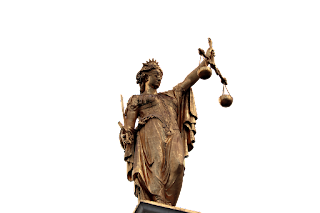When discussing the American opioid addiction epidemic, the name OxyContin is synonymous. The brand name of oxycodone, a powerful prescription opioid, is closely associated with our toxic relationship with painkillers in the United States.
Even people who’ve never been prescribed an opioid are familiar with OxyContin. The drug was prescribed by doctors in large amounts from the mid-nineties onward. The drugmaker – Purdue Pharma – marketed OxyContin as safe for users; the company contended that it carried a low risk of addiction.
Now 25 years later and tens of thousands of overdose deaths, OxyContin is anything but safe when prescribed in high doses for protracted periods. What’s more, most of today’s heroin users were introduced to opioids via drugs like oxycodone. Around 80 percent of people using heroin started down the path of opioid use disorder with prescription painkillers.
In recent years, the prescription drug industry or “big pharma” has been asked to account for its role in creating the public health crisis we face today. From doctors to drug distributors to the makers of the drugs themselves, many entities are in the hot seat for the more than 450,000 Americans who have died from an overdose since 1999.
While heroin and illicit fentanyl – a drug 100 times more potent than morphine – dominate the headlines today, the epidemic’s origin goes back to rampant overprescribing dating back to the 1990s. According to the Centers for Disease Control and Prevention (CDC), many doctors continue to prescribe high doses of oxycodone across the country more than two decades later.
In 2017, there were still almost 58 opioid prescriptions written for every 100 Americans; more than 17% of Americans had at least one opioid medication filled. More than 191 million opioid prescriptions were dispensed to Americans that year.
OxyContin Maker Held Accountable
Last month, the U.S Justice Department and Purdue Pharma agreed regarding its role in the opioid epidemic. The pharmaceutical giant agreed to plead guilty to criminal charges and face penalties of around $8.3 billion, The New York Times reports. Members of the Sackler family – the owners of Purdue Pharma – agreed to pay $225 million in civil penalties.
Purdue will plead guilty to felony charges of defrauding federal health agencies and violating anti-kickback laws, according to the article. The company will be ordered to pay $3.54 billion in criminal fines, $2.8 billion in civil penalties for violating the False Claims Act, and $2 billion in criminal forfeiture of profits.
It’s worth noting that there are thousands of pending lawsuits against Purdue Pharma. The agreement with the justice department could pave the way to a resolution in many of those cases. Steve Miller, chairman of the company board, said:
“Purdue deeply regrets and accepts responsibility for the misconduct detailed by the Department of Justice in the agreed statement of facts.”
While more than $8 billion is a lot of money, there is little indication that the company will pay anything close to that because it filed for bankruptcy court protection when the lawsuits started piling up. What’s more, there are some who feel that the agreement does not go far enough even though it did not preclude the filing of criminal charges against Purdue executives or members of the Sackler family. Maura Healey, the Massachusetts attorney general, said:
“The D.O.J. failed. Justice in this case requires exposing the truth and holding the perpetrators accountable, not rushing a settlement to beat an election. I am not done with Purdue and the Sacklers, and I will never sell out the families who have been calling for justice for so long.”
Massachusetts is moving forward with depositions against the Sacklers this month. It will be interesting to see how the cases against Purdue Pharma plays out. It could set a precedent; it is not the only company facing lawsuits for impropriety related to prescription opioids.
Opioid Use Disorder Treatment
Please reach out to Celebrate Hope if you are struggling with prescription opioid or heroin addiction. We can help you break the cycle of addiction and get on the path toward healing. Opioid use disorder is treatable and recovery is possible

